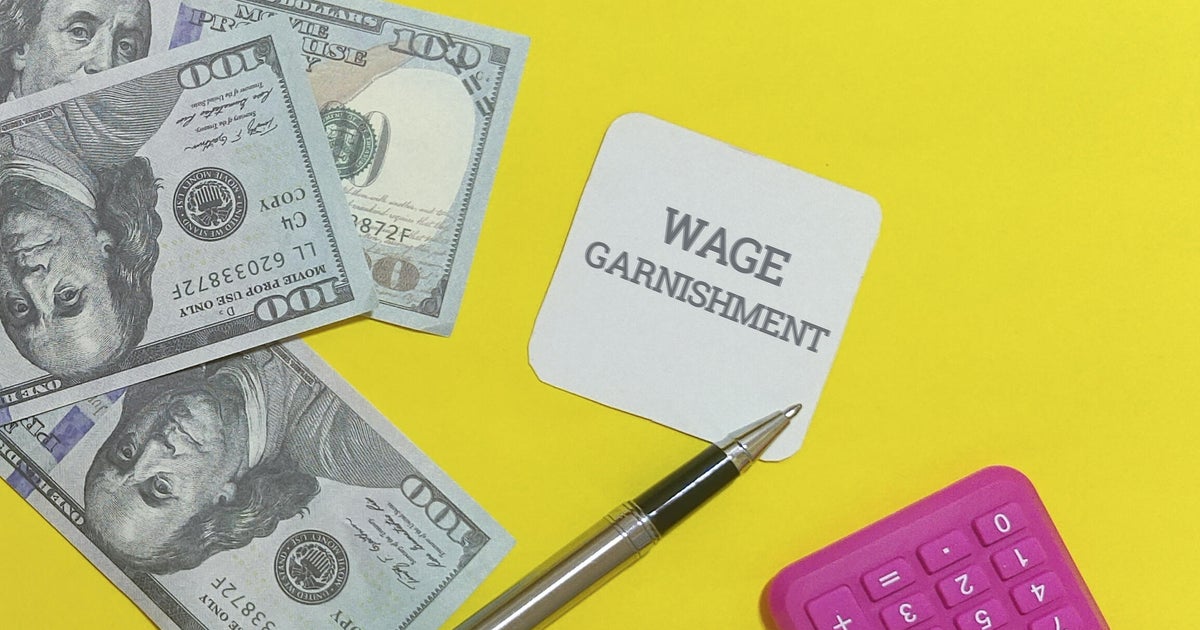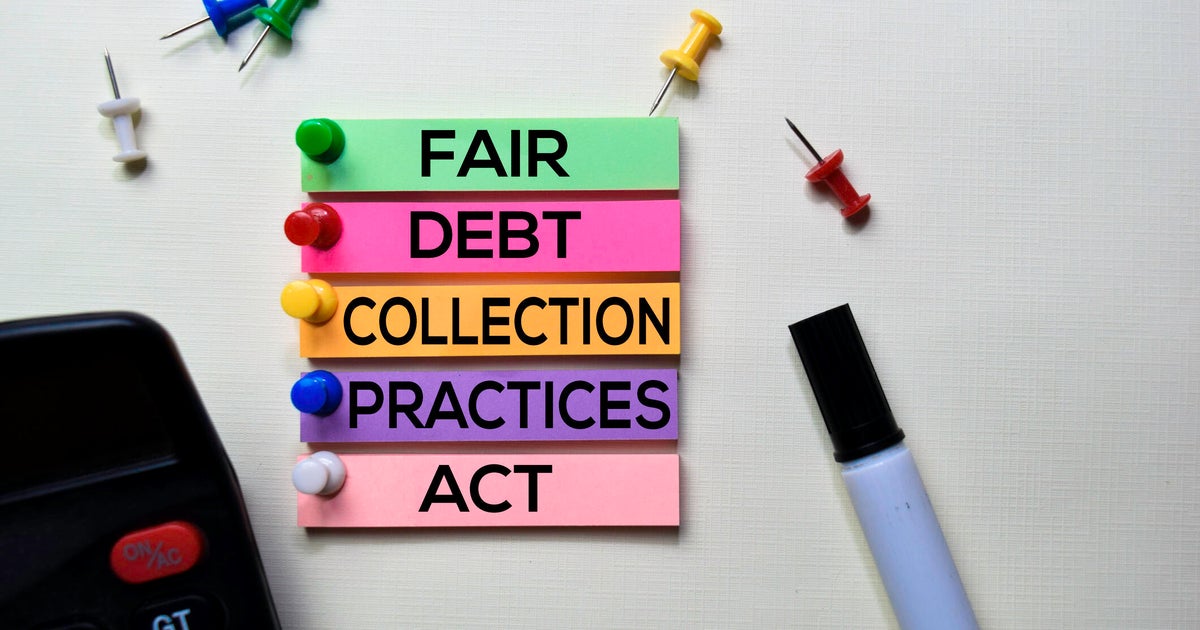Third stimulus check: Here's what could delay or lower your payment
The third stimulus check is already hitting some bank accounts, just days after President Joe Biden signed the American Rescue Act into law. But while some households will see the funds as early as this week, others may be in for a longer wait.
About 85% of people will receive one of the $1,400 checks, Mr. Biden said on March 12. It's also likely that some of the issues that stymied delivery for some people in the previous two rounds of stimulus could cause a repeat situation the third time. For instance, some people who didn't have a bank account on file with the IRS during the previous two rounds of checks had to wait several weeks for debit cards or paper checks to reach their homes.
It's most likely that people who have filed their 2020 or 2019 tax returns and have a bank account on file with the tax agency will quickly receive their stimulus checks through direct deposit, based on the prior payment rollouts. That's because the IRS prioritizes getting the stimulus money out quickly to those it knows it can reach — and it's a massive effort, given that the tax agency has $422 billion in funds to distribute to more than 100 million taxpayers.
About 100 million payments will be issued over the next 10 days, according to IRS and Treasury officials on a Monday conference call.
"You don't need to do anything to get your stimulus check," a TurboTax spokesperson told CBS MoneyWatch in an email. "The IRS will determine eligibility based on your last tax return (either 2019 or 2020) and will likely send your payment to the bank account where your tax refund was deposited."
The TurboTax spokesperson added, "If you haven't filed your 2020 return yet, you can do that now to give your most recent information to the IRS, including bank account or address information to help ensure your stimulus check goes to the right place."
One financial institution told CBS MoneyWatch it began receiving payments from the IRS for its customers starting around 11 a.m. EST on March 12. The bank, Current, said some accounts had received stimulus payments as high as $9,800. It added it is making all funds fully available by using its balance sheet to credit the funds, rather than waiting for the funds' settlement date through the government.
Even while some payments landed just one day after the bill was signed, the IRS has until the end of 2021 to distribute the checks, according to the legislation.
Here's what could hold up some people from receiving their money, or receiving the incorrect amount.
You haven't filed your 2019 or 2020 tax returns
Many people probably haven't filed their 2020 tax returns yet, given that the deadline for getting in your tax forms is April 15. In that case, there's no reason to worry — the IRS will use your 2019 tax return to determine how much you should receive.
But this becomes trickier for people who aren't required to file tax returns, such as those with no or very little earnings, which can be the case for some people on Social Security.
That became an issue with the first round of stimulus checks, especially since many of these people were in deepest need of the first round's $1,200 payments — and it wasn't an insignificant number. The IRS said it distributed more than 22 million stimulus payments last year that weren't based on filed tax returns.
Because of that issue, the IRS last year created a website specifically for non-filers, where they could provide their bank account information or addresses to the agency, as well as provide their number of dependents, who were each eligible for $500 in stimulus aid at the time.
But the non-filers website has been closed since late last year, and IRS and Treasury officials said on a March 12 conference call with reporters that they are urging non-filers to file a 2020 tax return to ensure they get all the payments and tax credits they are owed.
You filed a paper return
The IRS warned earlier this year that people who file paper tax returns could face delays. That's because the IRS is still dealing with a logjam of tax returns filed in 2019 — and it's likely that 2020 returns filed on paper will also face processing delays.
The tax agency's backlog is partially due to the pandemic, which prompted the IRS to shift its workers to remote work. When that happened, it stored paper tax returns in trailers until it could get to them. At the end of January, it still had 6.7 million returns awaiting processing.
People should file an electronic return in 2020 to ensure faster processing of their taxes, as well as their refunds and stimulus payments, IRS and Treasury officials said March 12.
You moved or changed your bank account
This could be a worry for people who received a mailed check or pre-paid debit card but recently moved, as well as people who changed their bank accounts.
The IRS said it will open up its "Get My Payment" tool on IRS.gov this week. The site is meant to inform people about the status of their payment, but won't allow them to update their bank account information, Treasury and IRS officials said March 12. However, the officials added that the agencies have been working on checking whether the bank account information they have is correct for consumers.
The downside: If a check is issued to a closed or incorrect account, the IRS will need to reissue the payment in a check and mail it to your house. That could add to your wait.
Your bank's policies
Some people expressed frustration on social media that their banks said their checks wouldn't be available until Wednesday, March 17, even though the IRS said it started distributing the payments over the weekend. Among the banks singled out by angry customers were Wells Fargo and JPMorgan Chase.
However, that delay is due to the time required for settlement of the funds, according to a statement from Nacha, the organization that governs the ACH Network for electronic funds transfer.
"Regardless of when payment files were sent and received, settlement of the funds for the payments will occur at 8:30 a.m. EST on Wednesday, March 17, exactly as instructed by the IRS," a spokesman said on Monday. "There is no mystery where the money is from the time the first payment file was transmitted on Friday, March 12, to when all recipients will have access to the money on Wednesday — it is still with the government."
However, some banks may have decided to advance the money to their clients, which is why some banks' customers received deposits as early as March 12.
Wells Fargo told CBS MoneyWatch it isn't holding the funds from customers and will deposit the funds as soon as they have them. Likewise, a Chase spokeswoman said the bank will transfer the funds into customer accounts on Wednesday, when it expects to get the money from the IRS.
"March 17 is the official payment date provided by the IRS when the funds are available, and customers who are eligible to receive a direct deposit of their stimulus payment may expect it as soon as the morning of March 17," a Wells Fargo spokesman said.
You have new or older dependents
Some people may get their checks quickly, but find that the amounts are incorrect — that could most likely be due to their dependents.
The third stimulus check entitles dependents to receive $1,400 each, but the IRS might not be aware of your children in some cases. For instance, if you had a baby in 2020 but haven't yet filed your tax return, the IRS will rely on your 2019 tax return to determine how much you are owed, which won't show the new child because they hadn't yet been born.
Example: A couple with a baby born in 2020 should receive $4,200, but if the IRS doesn't have their 2020 tax return, it will issue a payment of $2,800 for the two adults in the family. But IRS and Treasury officials said March 12 that families in this situation can be assured they will eventually get the additional $1,400 for their baby.
When they file their 2020 tax return, the IRS will check if they are owed more, such as in the case of a baby born last year. If that happens, the IRS will automatically issue the additional $1,400 check to the family, officials said.
Similar issues could occur for people who normally don't file tax returns and who used the non-filers tool to report their dependents last year. Because the first two rounds of checks excluded dependents above the age of 17, the IRS didn't count older teens and adult dependents on the non-filer tool.
People who typically don't file taxes are urged to file a 2020 return this year, Treasury and IRS officials said. That would help the IRS identify whether they have dependents who qualify for the third stimulus check. It would also potentially unlock other tax benefits that those households otherwise might not have claimed, such as the Child Tax Credit or Earned Income Tax Credit, both of which were expanded in the American Rescue Plan.
You lost income in 2020 but not yet filed a return
Some people could also receive less than they are entitled to if their income dropped in 2020 but they haven't yet filed their 2020 tax returns. This could happen for a single person who earned $90,000 in 2019, which is above the cutoff of $80,000 to receive a payment, but lost their job in 2020 and only earned $45,000 last year as a result.
If that person hasn't filed their 2020 return yet, they won't receive a stimulus payment because the IRS will base its calculation on their 2019 return, which showed they aren't eligible. But as soon as they file their 2020 tax return with the lower income, the IRS will issue stimulus payment to them, IRS and Treasury officials said.
–With reporting by Sarah Ewall-Wice.



